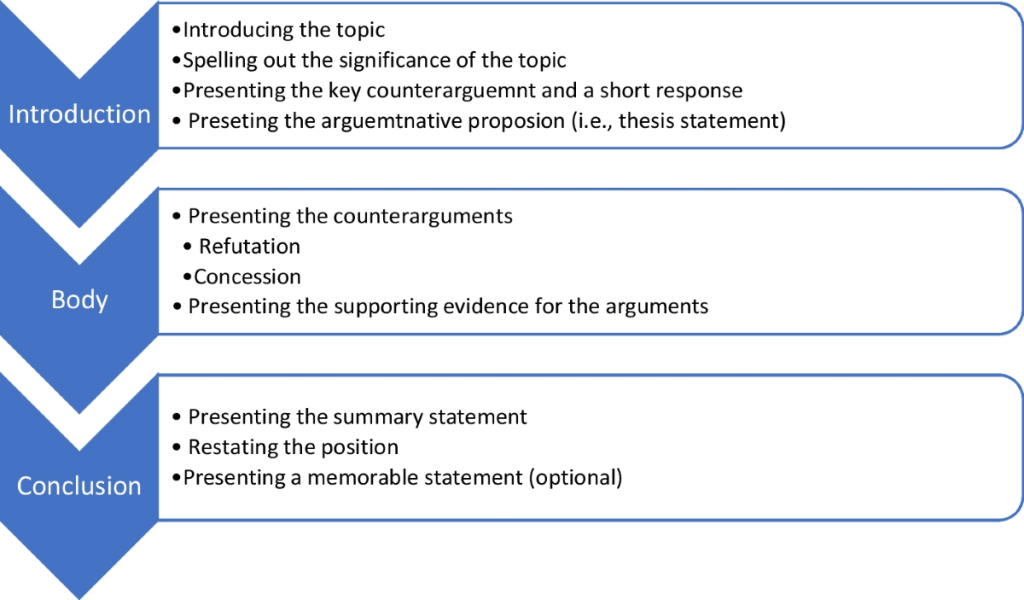
Table of Contents
The world of nursing is a rich tapestry woven with threads of scientific knowledge, clinical practice, and ethical considerations. Discursive nursing essays offer a unique platform to unravel these complexities, explore critical issues, and engage in thoughtful analysis. However, crafting a compelling discursive nursing essay requires more than just a collection of facts and opinions. It demands a structured approach, a critical lens, and a commitment to clear and concise communication.
This article outlines key guidelines to help you navigate the intricate pathways of writing a successful discursive nursing essay.
Steps to Crafting a Compelling Discursive Nursing Essay
1. Understanding the Discursive Nursing Essay:
The term “discursive” implies an essay that explores a topic from multiple perspectives, engaging in critical analysis and debate. Unlike a purely descriptive essay, a discursive nursing essay aims to delve deeper, questioning assumptions, examining different viewpoints, and reaching a reasoned conclusion.
Understanding the Assignment:
- Identify the question: Discursive nursing essays are often driven by a specific question or prompt. Understanding the question is crucial, as it sets the parameters for your argument and guides your research. For example, “Discuss the ethical implications of using technology in nursing practice” presents a different challenge than “Analyze the impact of social determinants of health on patient outcomes.”
- Clarify the scope: The assignment may provide specific boundaries for your essay, limiting the scope of your analysis. It’s essential to adhere to these limitations to ensure your essay remains focused and coherent.

2. The Foundation of a Strong Discursive Nursing Essay:
A. Defining Your Position:
- Stance and argument: A discursive essay should present a clear and well-defined argument. This “stance” is the central thesis statement, the main point you aim to argue for or against.
- Supporting evidence: Your argument must be backed by solid evidence, which can include:
- Literature review: Drawing on scholarly articles, research findings, and theoretical frameworks relevant to nursing practice.
- Clinical experience: Sharing personal observations and insights from your practice, ensuring ethical considerations are maintained.
- Ethical considerations: Examining ethical principles and their application to the issue.
- Policy analysis: Analyzing relevant policies and their impact on nursing practice.
B. Crafting a Compelling Argument:
- Logical reasoning: A discursive nursing essay relies on a logical progression of ideas. Use clear transitions to connect different sections and ensure your argument flows smoothly.
- Addressing counterarguments: A strong argument acknowledges opposing viewpoints. Present these counterarguments objectively and refute them with strong evidence, demonstrating a well-rounded understanding of the topic.
- Objectivity and neutrality: While your essay presents a clear stance, maintain an objective tone, avoiding overly emotional or biased language.
- Clarity and conciseness: Use clear and concise language, ensuring each sentence and paragraph contributes to your overall argument. Avoid jargon and technical terms unless they are essential and properly explained.
3. Structuring a Discursive Nursing Essay:
A. The Introduction:
- Hook: Start with a captivating introduction, drawing the reader’s attention to the topic’s importance and setting the stage for your argument.
- Background information: Provide a brief overview of the topic, setting the context for your argument and defining key terms.
- Thesis statement: Clearly state your thesis statement, the central argument you will be developing throughout the essay.
B. Body Paragraphs:
- Develop your argument: Each body paragraph should focus on a specific point supporting your main argument.
- Use evidence: Back each point with strong evidence, citing sources appropriately.
- Address counterarguments: Refute opposing viewpoints to strengthen your argument.
- Transition smoothly: Use clear transitions between paragraphs to maintain a cohesive flow.
C. The Conclusion:
- Restate your thesis: Restate your main argument, emphasizing its importance and significance.
- Summarize key points: Summarize the main points discussed in the body paragraphs.
- Offer implications and recommendations: Discuss the implications of your argument and suggest potential solutions or areas for further research.

4. Essential Considerations for Discursive Nursing Essays:
A. Maintaining Ethical Standards:
- Confidentiality and anonymity: When drawing on personal experiences, ensure confidentiality and anonymity are maintained, protecting patient privacy.
- Respectful language: Use respectful and non-discriminatory language when discussing sensitive issues.
- Avoiding bias: Be mindful of biases that may influence your perspective and strive for an objective and balanced presentation of information.
- Acknowledging limitations: Be transparent about the limitations of your research or argument, acknowledging potential biases or gaps in knowledge.
B. Writing with Clarity and Style:
- Academic voice: Maintain a formal and academic voice throughout the essay.
- Active voice: Use the active voice to create a more engaging and direct writing style.
- Sentence structure: Vary sentence structure to enhance readability and flow.
- Proofreading and editing: Thoroughly proofread and edit your essay for grammar, spelling, and punctuation errors.
5. Navigating the Discursive Nursing Essay Writing Process:
A. Pre-Writing:
- Brainstorming: Generate ideas and explore different perspectives on the topic.
- Research: Gather relevant evidence and sources to support your argument.
- Outline: Structure your essay with a clear introduction, body paragraphs, and conclusion.
B. Writing:
- Start with a strong introduction: Captivate the reader’s attention and clearly state your thesis.
- Develop your argument with supporting evidence: Use clear and concise language, citing sources appropriately.
- Address counterarguments objectively: Acknowledge opposing viewpoints and refute them with evidence.
- Maintain a consistent and academic voice: Use formal language and avoid slang or colloquialisms.
C. Post-Writing:
- Proofreading and editing: Thoroughly check for grammar, spelling, and punctuation errors.
- Seek feedback: Get feedback from peers, instructors, or other trusted individuals.
- Final revisions: Incorporate feedback and make final revisions to ensure your essay is clear, concise, and well-argued.
6. Resources for Discursive Nursing Essay Writing:
- Nursing journals: PubMed, CINAHL, Nursing Papers and Cochrane Library are valuable resources for accessing scholarly articles.
- Nursing textbooks: Utilize relevant textbooks for theoretical frameworks and definitions.
- Professional organizations: Professional nursing organizations offer resources, guidelines, and ethical codes.
- Online databases: Use online databases like Google Scholar and JSTOR to search for relevant research.
Compelling Discursive Nursing Essay Topics
- The Ethics of Advance Care Planning: Balancing Autonomy and Medical Expertise
- Explore the ethical considerations surrounding advance care planning, including patient autonomy, informed consent, and the role of healthcare professionals in guiding decision-making.
- The Impact of Technology on Nursing Practice: Benefits, Challenges, and Future Implications
- Analyze the ways in which technology is transforming nursing practice, discussing both its potential benefits (e.g., telehealth, data analysis) and challenges (e.g., privacy concerns, digital divide).
- Cultural Competency in Nursing: Addressing Health Disparities and Promoting Inclusive Care
- Examine the importance of cultural competency in nursing practice, discussing strategies for understanding and respecting diverse patient backgrounds and reducing health disparities.
- The Role of Nursing in Promoting Mental Health and Wellbeing
- Explore the multifaceted role of nurses in promoting mental health, focusing on their unique skills in assessment, education, and therapeutic interventions.
- Nursing Education in the 21st Century: Preparing Graduates for a Changing Healthcare Landscape
- Discuss the evolving needs of nursing education, considering the changing healthcare landscape, technological advancements, and emerging healthcare challenges.
- The Impact of Nurse Burnout on Patient Safety and Quality of Care
- Analyze the consequences of nurse burnout, exploring how it affects patient safety, quality of care, and overall healthcare outcomes.
- The Importance of Interprofessional Collaboration in Nursing Practice
- Discuss the benefits of interprofessional collaboration in nursing, highlighting how it enhances patient care, communication, and resource utilization.
- The Role of Nursing in Global Health Initiatives: Addressing Health Challenges Worldwide
- Explore the contributions of nurses in global health initiatives, focusing on their involvement in disaster relief, community health development, and disease prevention.
- The Future of Nursing: Emerging Trends and Opportunities
- Speculate on the future of the nursing profession, discussing emerging trends (e.g., artificial intelligence, personalized medicine), new opportunities (e.g., leadership roles, research), and the evolving role of nurses.
- The Significance of Compassionate Care in Nursing: Fostering Patient-Centered Practices
- Examine the importance of compassionate care in nursing practice, highlighting its impact on patient well-being, satisfaction, and overall health outcomes.
Overcoming the Common Mistakes in Discursive Nursing Essays
While a discursive nursing essay offers a valuable opportunity to delve deeper into nursing practice, certain common pitfalls can hinder its effectiveness. Understanding these pitfalls and learning how to avoid them is crucial for crafting a compelling and impactful essay.
1. Lack of Clear Focus and Argument:
- The Problem: A common issue in discursive nursing essays is a lack of clear focus and a poorly defined argument. The essay may wander off topic, present multiple conflicting ideas, or fail to provide a strong thesis statement.
- Solution: Before you begin writing, carefully analyze the prompt or question. Identify the central issue or theme, and formulate a clear and concise thesis statement that encapsulates your stance. Every paragraph should directly relate back to your thesis and contribute to the overall argument.
2. Insufficient Evidence and Support:
- The Problem: A discursive nursing essay should be grounded in solid evidence. However, relying solely on personal opinions or anecdotal experiences is not enough. Insufficient research, weak sources, or a lack of proper citations can undermine the credibility of your argument.
- Solution: Conduct thorough research, drawing from a wide range of sources such as scholarly journals, textbooks, and reputable online databases. Use evidence to support each point, citing sources accurately and consistently.
3. Ignoring Counterarguments:
- The Problem: A strong discursive nursing essay acknowledges and addresses counterarguments. Simply stating your position without considering opposing viewpoints can weaken your argument and make it seem one-sided.
- Solution: Before writing, identify potential counterarguments to your thesis. Present these counterarguments objectively and then refute them using evidence and logical reasoning. This demonstrates a well-rounded understanding of the topic and strengthens your overall argument.
4. Unclear Language and Structure:
- The Problem: A poorly structured discursive nursing essay can be difficult to follow and understand. Unclear language, confusing sentence structure, and lack of transitions can make your argument seem disjointed and unpersuasive.
- Solution: Use clear and concise language, avoiding jargon or technical terms unless they are essential and defined. Pay attention to sentence structure and paragraph flow, using transitions to connect ideas and guide the reader through your argument.
5. Lack of Engagement and Critical Analysis:
- The Problem: A discursive nursing essay should not simply present information; it should engage with the topic on a deeper level. Failing to analyze, synthesize, and critically evaluate the evidence can lead to a superficial and uninspiring essay.
- Solution: Go beyond merely summarizing facts or presenting opinions. Analyze the implications of the evidence, consider different perspectives, and draw meaningful conclusions. Ask critical questions, challenge assumptions, and explore the complexities of the topic.
6. Ethical Lapses:
- The Problem: When writing a discursive nursing essay, it is crucial to adhere to ethical guidelines. Failing to protect patient confidentiality, using discriminatory language, or failing to acknowledge limitations can severely undermine the credibility and integrity of your work.
- Solution: Always prioritize ethical considerations when writing about patient care or sensitive issues. Maintain patient confidentiality, use respectful language, and acknowledge any biases or limitations of your research.

7. Overlooking the Importance of Proofreading and Editing:
- The Problem: Errors in grammar, spelling, and punctuation can detract from the overall quality of your discursive nursing essay. Failing to proofread and edit thoroughly can create a negative impression on the reader.
- Solution: After writing your essay, proofread it carefully for any errors. Consider seeking feedback from peers, instructors, or writing centers to help you identify areas for improvement.
Avoiding these pitfalls is essential for crafting a successful discursive nursing essay. By focusing on clear arguments, solid evidence, ethical considerations, and careful writing practices, you can produce an essay that is both informative and impactful. Remember, the goal is to present a compelling, well-argued analysis of a nursing-related issue, demonstrating your ability to critically engage with the complexities of the field.
By diligently addressing these pitfalls, you can create a compelling discursive nursing essay that not only earns a good grade but also contributes to a deeper understanding of the challenges and opportunities within the profession.
Frequently Asked Questions about Discursive Nursing Essays
1. What is a discursive nursing essay?
A discursive nursing essay explores a particular topic in nursing by examining different perspectives and arguments. It goes beyond simply stating facts and aims to engage with the complexities of the issue, considering multiple viewpoints and fostering critical thinking. The goal is not to simply present a definitive answer, but to open up a conversation and encourage further discussion.
2. What are the key characteristics of a discursive nursing essay?
- Exploration of diverse perspectives: A discursive nursing essay should present various viewpoints on the chosen topic, highlighting different theoretical frameworks, ethical considerations, and practical implications.
- Critical analysis: It should engage in a critical analysis of the presented arguments, evaluating their strengths and weaknesses, and exploring potential limitations.
- Clear and concise writing: The essay should be written in a clear and concise manner, using academic language and proper citation techniques.
- Engagement with literature: It should draw upon relevant research and literature, providing evidence and supporting arguments with scholarly sources.
3. How do I write a strong discursive nursing essay?
- Choose a relevant and engaging topic: Select a topic that interests you and allows for a thoughtful exploration of different perspectives.
- Develop a clear thesis statement: This should be a concise statement that outlines the main argument of your discursive nursing essay.
- Structure your essay logically: Organize your essay into distinct sections, each exploring a different aspect of the topic.
- Engage with opposing arguments: Don’t shy away from presenting counterarguments and then address them effectively.
- Conclude with a strong synthesis: Summarize your main points and highlight the key insights that emerged from the discussion.
4. What are some common mistakes to avoid in a discursive nursing essay?
- Lack of clarity: Ensure your arguments are clearly stated and supported with evidence.
- Oversimplification: Avoid presenting overly simplistic arguments or ignoring the complexity of the chosen topic.
- Ignoring opposing viewpoints: Engage with opposing arguments to demonstrate a well-rounded understanding of the issue.
- Poorly structured writing: Ensure your essay is logically organized and follows a clear structure.
5. How can I improve my discursive nursing essay writing?
- Practice writing: Regularly write discursive nursing essays to develop your critical thinking and writing skills.
- Seek feedback: Ask peers, professors, or writing tutors for feedback on your writing to identify areas for improvement.
- Read extensively: Engage with a wide range of literature on nursing topics to gain a broader understanding of different perspectives and arguments.
By understanding the key characteristics and elements of a discursive nursing essay, you can craft a compelling and thought-provoking piece that contributes to the ongoing discourse in nursing.
Final Thoughts
Crafting a successful discursive nursing essay requires a deep understanding of the topic, a commitment to clear and concise writing, and a willingness to engage in critical analysis and debate. By following these guidelines, you can navigate the labyrinth of this challenging but rewarding form of academic writing, producing an essay that is both informative and impactful.

Remember, a discursive nursing essay is more than just a collection of facts. It is a platform for critical thinking, ethical reflection, and meaningful engagement with the complex world of nursing practice. So, embrace the challenge, hone your skills, and write with conviction and purpose.
Get Professional Nursing Essay Writing Help
Wondering where to find help with writing a discursive nursing essay? Then, engage Nursing Papers for customized essay writing assistance. We can help you with choosing a compelling topic, essay writing, proofreading, editing, formatting and plagiarism removal. Our service also covers nursing research papers, case studies and dissertations.







